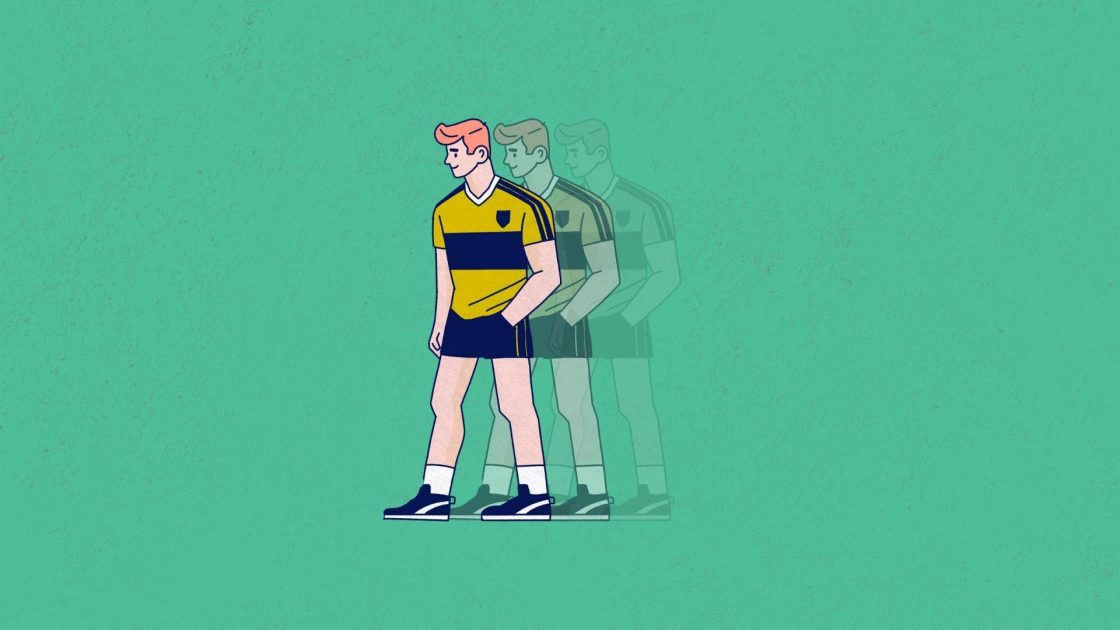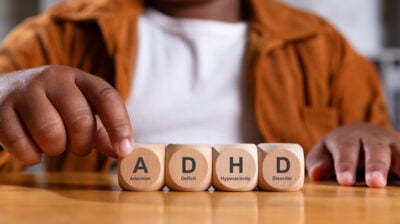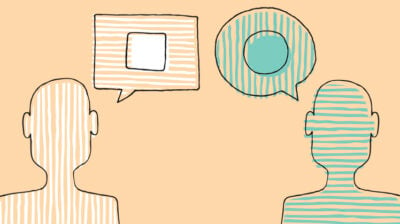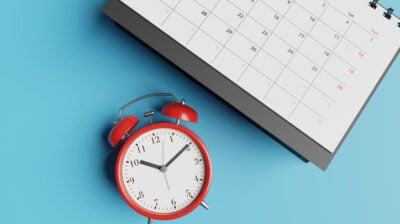What losing rugby and finding my ADHD diagnosis taught me
Rory shares his journey of injury recovery, ADHD diagnosis, and grief, highlighting resilience, support, and the lessons he learned along the way.

In the first week of 2023, I returned to rugby training. I had been dealing with what I thought was a minor knee injury, but during that first session, the pain returned.
A week later, an MRI confirmed my worst fear—I had suffered a full Anterior cruciate ligament (ACL) rupture and that this required reconstruction surgery. In that moment, it felt like my entire world was falling apart.
The surgery meant that I would be out of rugby for at least a year, forcing me to miss my final school’s rugby competition. Rugby had been such a core part of my identity, and the thought of sitting on the sidelines was unbearable.
Watching my teammates play while I was left out was painful. I felt isolated, having already missed two big games the previous year due to a knee injury. I became consumed by thoughts of the surgery, worrying about the risks and the possibility of the surgery not working out. The uncertainty was overwhelming.
A diagnosis and a new understanding
In February, while struggling with my injury, I finally had an ADHD assessment- something I had been waiting for a long time.
Throughout school, I had always struggled with concentration and engagement. I had been diagnosed with dyspraxia at the age of five, but looking back on old school reports, it was clear there was something else going on.
When I received my ADHD diagnosis, I felt a profound sense of grief for all the years I had spent feeling different, confused, and unable to understand why. At the same time, I recognised this diagnosis of ADHD as a turning point. It allowed me to start working with myself rather than against myself and recognise my potential.
The mental impact of my ACL injury
A week after my diagnosis, my mock exams began, and my surgery was scheduled just two days after they ended. This period was incredibly challenging. Insomnia kept me from sitting half of my exams, and most nights, I barely got four hours of sleep.
I had never felt so restless and anxious in my life. I remember walking into school on the last day of the mocks, exhausted, with my friends visibly worried as they saw the fatigue written all over my face.
The surgery itself was gruelling. It required full ACL reconstruction, and I left the hospital in immense pain. Complications led to severe swelling—my knee ballooned to an enormous size. Despite this, I had no choice but to push forward, as my Leaving Cert oral exams were fast approaching. Studying while on crutches, with a leg that felt completely lifeless, was physically and mentally exhausting.
Coping with surgery and academic pressure
To my surprise, my oral exams went well, but the aftermath was chaotic. I had fallen significantly behind on my studies and became lethargic due to my inability to exercise. My rehabilitation progress was slow—I was struggling with walking without support and regaining quad control.
Throughout this period, my mother was my rock. She essentially ran a ‘boot camp’ with me, studying alongside me every day, sacrificing her work and commitments to help me stay on track. For the first time in my secondary school years, I started using study methods that actually worked for me, rather than forcing myself into techniques that never suited my learning style.
With sheer determination, I managed to make it through to the end of the Leaving Cert. Finishing those exams brought a tremendous sense of relief, and I was able to join my classmates on our 6th-year holiday.
Navigating recovery while battling setbacks
Four months after surgery, I was still walking with a limp
The frustration of slow progress weighed on me heavily. Walking for just thirty minutes caused my knee to swell, and I started to doubt whether I would ever run or play rugby again.
I began a structured rehabilitation program in July. However, our family trip to Mayo highlighted my limitations—I couldn’t participate in my usual activities like surfing and running, which only intensified my frustration. Six months after my injury, I felt stuck, unable to see a light at the end of the tunnel.
Grief and the emotional toll of loss
At the beginning of August, my world came crashing down. I received a phone call from a friend—one of our close friends had taken his own life. The shock of someone close to me dying by suicide was overwhelming. I went into full survival mode, but nothing could numb the waves of grief and guilt that consumed me. I kept asking myself whether i had been too caught up in my own struggles to notice his, and how this could have happened. On reflection, I understand now that these thoughts and emotions were a normal response to a tragic death, and that it was important for me to talk about what I was feeling and experiencing.
The months that followed were some of the hardest of my life. While I was grateful to have secured a place in my first-choice CAO course, the joy was hollow—my friend was no longer with me.
Sadness became my constant companion. I cried nearly every day. My body and mind were utterly exhausted. I felt trapped in circumstances beyond my control, drowning in helplessness. My friends were also struggling, yet none of us could change what had happened.
Finding new ways to heal and regain strength
In November, I came across the ‘Headspace’ series on Netflix and decided to try meditation. It was something I had never done before, but it helped me process the chaos in my mind.
I started focusing on my rehabilitation with renewed discipline, determined to make progress. Around the same time, I returned to therapy, which provided me with the support I desperately needed to work through my complex emotions.
Lessons learned from a year of struggle and growth
When the year finally ended, I felt an immense sense of relief. That year had been one of hardship but also of growth, resilience, and learning. Looking back, it wasn’t just the struggles that defined the year—it was the kindness and support of the people around me that carried me through and gave me the strength to keep going.
I’ll never forget the small yet significant moments that made all the difference. My school friends travelled 45 minutes to bring me a burrito from my favourite restaurant a week after my surgery. Another group dropped by twice during our Leaving Cert study break to watch the finale of our favourite show together. My mum, unwavering in her support, gave up everything to make sure I had what I needed, never pressuring me, only wanting the best for me.
That year taught me invaluable lessons about resilience, loss, and the importance of openness with loved ones.
Though it was the hardest year of my life, I can now reflect on it with acceptance and introspection.
Feeling overwhelmed and want to talk to someone?
- Get anonymous support 24/7 with our text message support service
- Connect with a trained volunteer who will listen to you, and help you to move forward feeling better
- Whatsapp us now or free-text SPUNOUT to 50808 to begin.
- Find out more about our text message support service
If you are a customer of the 48 or An Post network or cannot get through using the ‘50808’ short code please text HELLO to 086 1800 280 (standard message rates may apply). Some smaller networks do not support short codes like ‘50808’.






